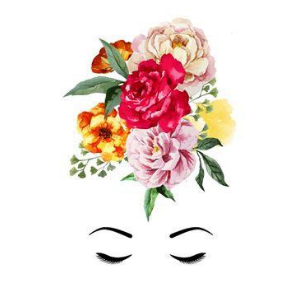
Reframed Law 1: Make Self-Compassion Obvious

I once had a client, a fierce advocate for social justice, describe a typical afternoon to me. She was on a tense conference call, feeling her shoulders creep up toward her ears and a familiar tightness spreading across her chest. Her smartwatch buzzed—a reminder to stand up and stretch. She swiped it away without a second thought. "I didn't have time for that," she told me. "I had to win the argument." Later that evening, the tightness in her chest had blossomed into a full-blown anxiety attack. She had ignored the cue, and her body, feeling unheard, had decided to scream.
This is the dangerous habit of Internalized Neglect. The Strong Black Woman schema has socialized us to believe that our pain, our stress, and our exhaustion are things to be pushed through, not responded to. We are praised for our resilience, which often translates to ignoring our own distress signals. Clear's First Law of Behavior Change is "Make it Obvious." It's about creating external cues for good habits. But for us, the work is more profound. We must reimagine this law to honor the cues that are already there—the internal signals from our own bodies.
Let's apply the "Truth vs. Experience" framework to this reimagined law.
- The Situation: You're in the middle of your workday and you feel a wave of exhaustion wash over you. Your eyes feel heavy, and your focus is gone.
- The Emotional Experience: Your inner critic immediately chimes in: "You can't be tired already. Look at your to-do list. Push through. Being tired is lazy. It's a weakness." You feel a pang of guilt and reach for another cup of coffee.
- The Empowering Truth: Your body's signal of exhaustion is not an inconvenience; it is vital data. It is a compassionate request for rest. Honoring that signal is an act of radical self-respect and the highest form of strength. Self-compassion isn't a luxury; it's a survival strategy.
- The Behavioral Shift: The old habit is to override the cue. The new, reimagined habit is to make the internal cue the trigger for a compassionate action. We use habit stacking differently: "After I notice the feeling of exhaustion (existing cue), I will close my eyes and take five deep breaths (new habit)." Or, "When the tightness appears in my chest (cue), I will get up and stretch for 60 seconds (new habit)." The work is to build the habit of noticing and responding with kindness.
Your most important cue is not an external reminder to do more, but the internal signal of your own body. Making self-compassion obvious means learning to listen to the whisper of your body before it has to scream. This is the foundation of a system built for sustainable power, not just performance.
Learning to listen to your body after years of tuning it out is a practice that requires support. It's about unlearning and creating new, gentle pathways. If you're ready to start this journey, know that you are not alone.
At Be True Counseling, we offer individual therapy, an online community, and a podcast to provide culturally competent care as you learn to make self-compassion your most obvious habit.
#MakeSelfCompassionObvious #SelfCompassion #TherapyForBlackWomen #MindfulLeadership #BlackWellness #ListenToYourBody #BeTrueCounseling #RadicalSelfCare #WOCinLeadership #BurgandyHolidayLCSW
Message Me
I'll be delighted to hear from you.
Get In Touch
Give us a call
(215) 284-9107Send us an email
[email protected]